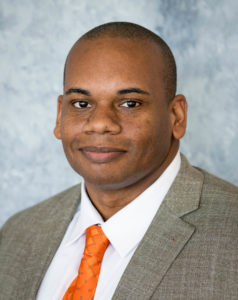
Commissioner Wayne D. Lewis
I have fond memories of school assemblies celebrating the birthday of Dr. Martin Luther King Jr. in January and Black History month in February.
In 4th grade, although a year too young to formally compete, my school permitted me to participate in the annual MLK speech contest, reciting Dr. King’s “I Have a Dream” speech. Thereafter I participated annually in the contest, learning and reciting excerpts from, King’s “I’ve Been to the Mountaintop” and “The Drum Major Instinct” speeches.
Every year during our annual celebration of Black History Month, I looked forward to a dramatic performance of “The Ballad of the Landlord,” a poem by Langston Hughes that was meant to draw attention to the substandard housing conditions of African Americans in the 1930s and 1940s. But my absolute favorite was the dramatic performance of “Booker T. and W.E.B.,” a poem by Dudley Randall. It was Randall’s poem that first exposed me to the post-Reconstruction era debate within the African American community around the merits of classical education, espoused by W.E.B. DuBois, versus more practical education, advocated for by Booker T. Washington. Interestingly, that conversation continues even today, not only in the African American community, but also in our larger American community.
Learning about and celebrating the contributions of African Americans to the building, development and success of the United States was an important part of my childhood and schooling. It is important to me as an educator and even more important to me as a father.
As we reflect on the history and contributions of African Americans during this Black History Month, my hope is that we also recognize that we have the opportunity to make black history today. In 2019, as African Americans in Kentucky typically trail every other demographic group on education, economic, and health and wellness indicators, we have the opportunity to recommit ourselves to making significant positive movement on those indicators for young African Americans.
In education, we have the opportunity to make black history by enrolling more African American children into high-quality early learning programs, making it much more likely that they will be academically, socially and emotionally ready for kindergarten. We can make black history by ensuring that low-income African American students have the same access to high-quality, effective instruction that their more affluent peers enjoy. We can make black history by closing shameful achievement gaps between white and African American students in reading, mathematics and science; by preparing and sending more African American students to postsecondary education; and by providing African American students with the support necessary to successfully complete credentials and degrees and enter gainful employment.
Any reading of black history makes it clear that while it centers on the experiences of African Americans, it has been made by more than just African Americans. It is the history of African Americans in America, and that history, that story, is comprised of people of all races and ethnicities.
We as Kentuckians, collectively, have the opportunity to make black history by changing the educational opportunities and outcomes of African American children in our state, and thus changing the life trajectories and outcomes for African Americans in Kentucky for generations to come. Doing so would indeed be history worth making.




Leave A Comment